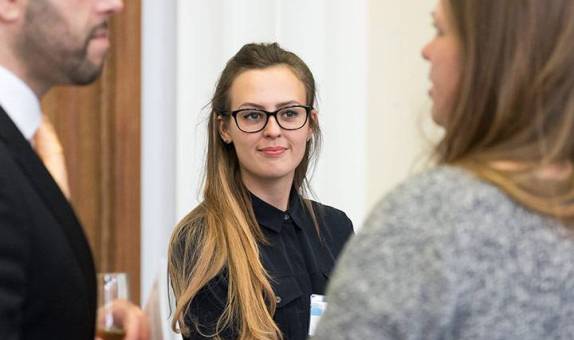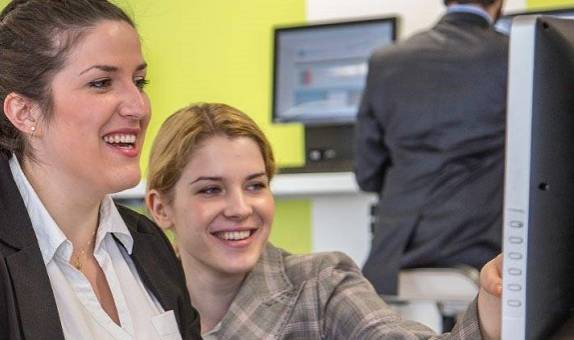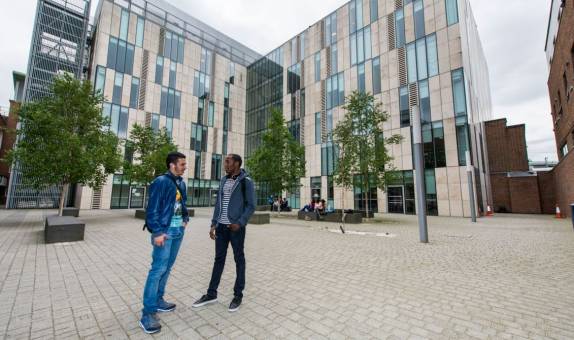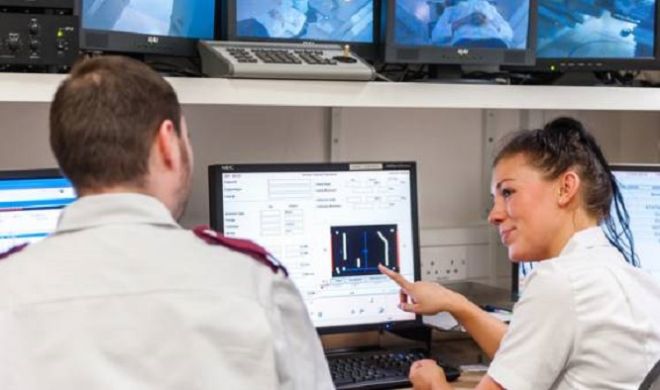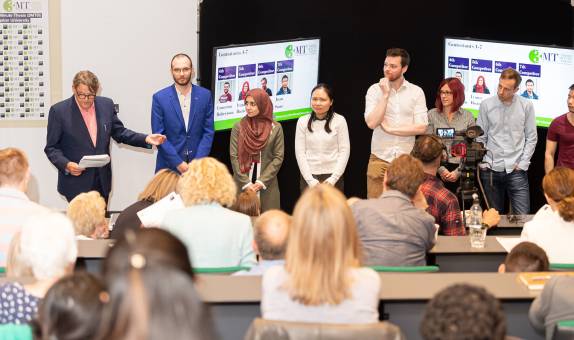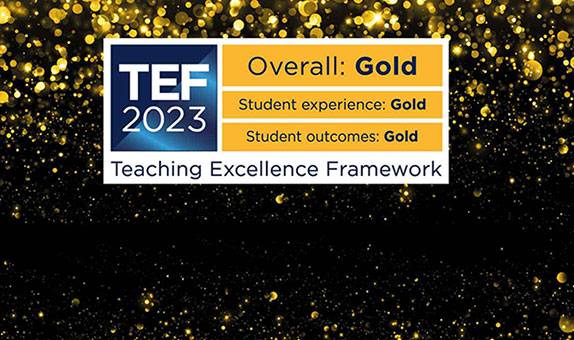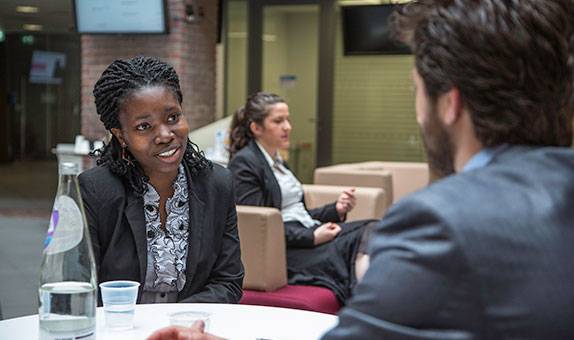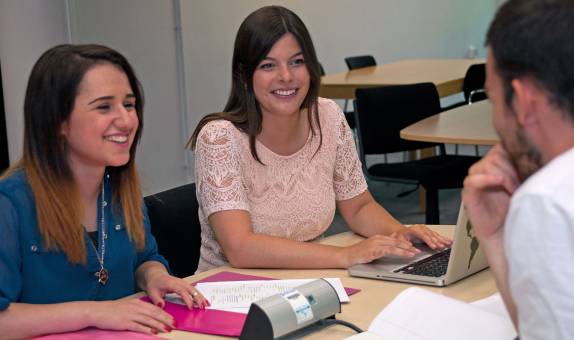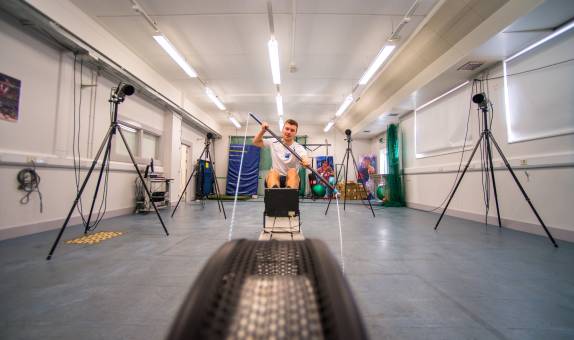Knowledge transfer partnerships for business
What is a KTP?
KTP is a part government-funded initiative enabling forward-thinking businesses to harness universities' expert knowledge, technology and research, to help them improve their processes and products, via innovative projects.
KTP is a three-way partnership between a business, academic/research institution and a qualified graduate. The graduate will work on the strategic, innovative project for up to three years under the supervision of a Kingston University academic team and a manager based within the organisation.
If you have a strategic challenge which is central to the development of your business, but perhaps are lacking the specialised knowledge and expertise to address it, a KTP could offer a solution.
The KTP programme has supported over 13,000 partnerships that have linked businesses with the UK's world-class knowledge bases to deliver innovation projects led by talented graduates, delivering an 800% return on investment.
Benefits of KTP for businesses
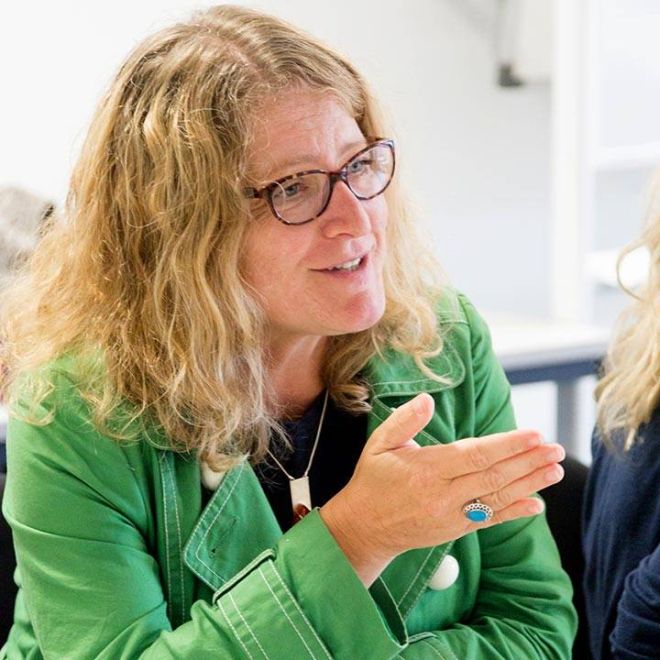
- Access qualified experts to lead strategic projects and help take your organisation forward
- Embed expertise, expand capability and foster a culture of innovation
- Increase revenue/profits through access to new markets, new product development, increased productivity and better processes.
- Develop innovative solutions to help your organisation grow.
- Increase your competitive advantage and profitability.
- Improve your performance/business operations.
Businesses typically achieve significantly increased growth in turnover and profitability as well as creating new jobs.
KTP at Kingston University
Kingston University has been facilitating KTPs since 1992 and has won a number of awards and received outstanding ratings for projects working with businesses from a range of sectors.
Cubic Defence UK Limited (Vocality)
Developing technology to assess the quality of available communication channels in real time and select the fastest or most cost-effective route.
Equas
Developing an environmental, health and safety legal compliance software tool and database for SMEs operating in the United Arab Emirates.
Hampton Court Palace
Redesigning the way that visitors experience the Tudor sections of Hampton Court.
Linguaphone Group Ltd
Developing a kindergarten curriculum for Pingu's International English School, run in over 20 countries.
Pangea Connected Ltd
Developing a cutting-edge 5G-enabled video streaming system that will allow A&E doctors to make life-saving decisions on patient care by viewing live footage from ambulances.
Places for People Leisure
Developing a nationally-agreed system for the quality assurance of exercise in managing age- and obesity-related chronic disease.
Salutem
Developing a sophisticated sensor system that will alert carers of people with autism and learning difficulties when urgent support is needed.
The Entryphone Company
Developing new wireless solutions allowing users to interact with their entry door and visitors through their mobile device or browser, from anywhere in the world.
More information about KTPs
Frequently asked questions
Useful links
- Training and professional development (short courses)
- Research
- In the community
- Careers and employability (graduate recruitment)
- Student entrepreneurship
- Our rankings




